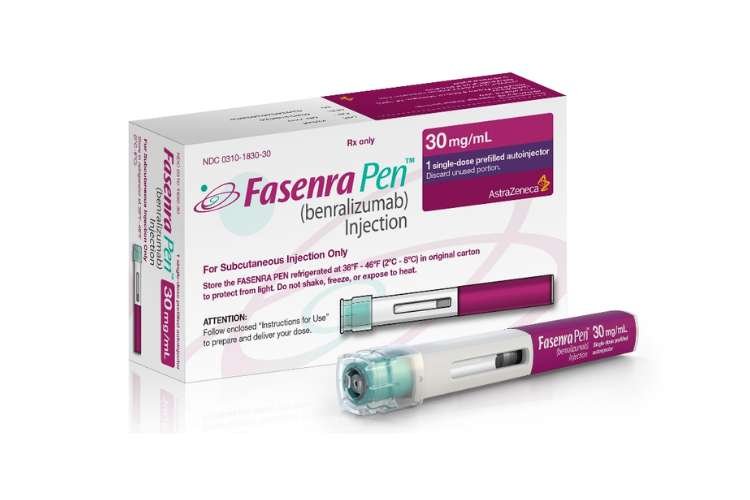The MANDARA Phase III trial has shed new light on the effectiveness of AstraZeneca’s Fasenra (benralizumab). Unveiling favorable high-tier outcomes, Fasenra not only achieved its primary objective but also showcased rates of remission parallel to the benchmark treatment, mepolizumab. These findings were especially pertinent for patients already on a regimen of oral corticosteroids, both standalone and in conjunction with established immunosuppressive therapies.
Setting a new precedent, MANDARA marks the initial Phase III trial to pit biologics against one another in the battle against EGPA. With mepolizumab currently being the sole FDA-approved therapy, this study intricately juxtaposed the potency and safety profiles of the two. Participants in the double-blind study were set on one of two tracks: a singular 30mg injection of Fasenra or a trilogy of 100mg mepolizumab shots, administered subcutaneously every four weeks.
Diving deeper into EGPA, it stands as a rare immunological condition resulting from inflammation in small to mid-sized vascular pathways. A significant portion of EGPA sufferers concurrently grapple with adult-onset severe eosinophilic asthma (SEA). The ramifications of EGPA are manifold, afflicting vital organs ranging from the lungs and skin to the heart, GI system, and neural pathways. Left unchecked, the cumulative toll of this ailment can be life-threatening.
Adding another feather in its cap, Fasenra’s safety and tolerance quotient in the trial mirrored its established medicinal profile. Pharma enthusiasts and professionals will have the privilege of accessing the full MANDARA findings in an imminent medical assembly, with global health custodians being kept in the loop.
Zooming in on Fasenra’s mechanics, it is a specialized monoclonal antibody. Its modus operandi? Directly anchoring onto the IL-5 receptor alpha found on eosinophils and beckoning natural killer cells. This results in a swift, comprehensive depletion of eosinophils in both blood and tissue compartments through a process known as apoptosis.
Riding on its current accolades, Fasenra already enjoys the green light as an adjunct maintenance solution for SEA across major global territories like the US, EU, and Japan. It’s also blessed with the nod for self-administration in these regions. Circling back to 2018, the FDA endowed Fasenra with the coveted Orphan Drug Designation for EGPA. Undeterred in its mission, AstraZeneca is ardently probing deeper into Fasenra’s therapeutic horizons, believing it to be the beacon for multiple eosinophil-driven maladies.
Official Statement
“The positive MANDARA trial results are exciting because patients with eosinophilic granulomatosis with polyangiitis today have limited treatment options but face crippling symptoms, which can even be fatal if not treated. This trial demonstrates that a biologic medicine given in a single monthly injection could help patients achieve remission rates comparable to the current standard of care, adding to the importance of benralizumab as a potential treatment option for eosinophilic granulomatosis with polyangiitis.”
– Dr Michael Wechsler, Principal Investigator
“The positive results from MANDARA demonstrate that Fasenra, which has a unique mechanism of action and directly targets eosinophils, can help patients achieve remission from the debilitating impacts of this inflammatory disease with a more convenient single monthly subcutaneous injection.”
– Sharon Barr, Executive Vice President, BioPharmaceuticals R&D, AstraZeneca





























